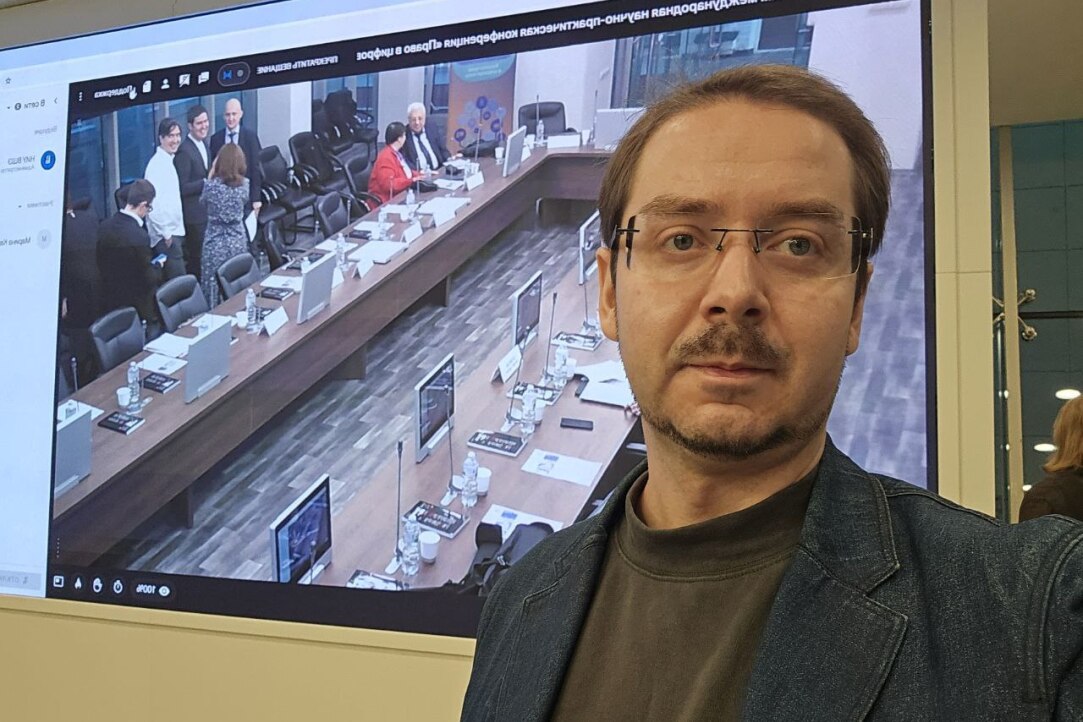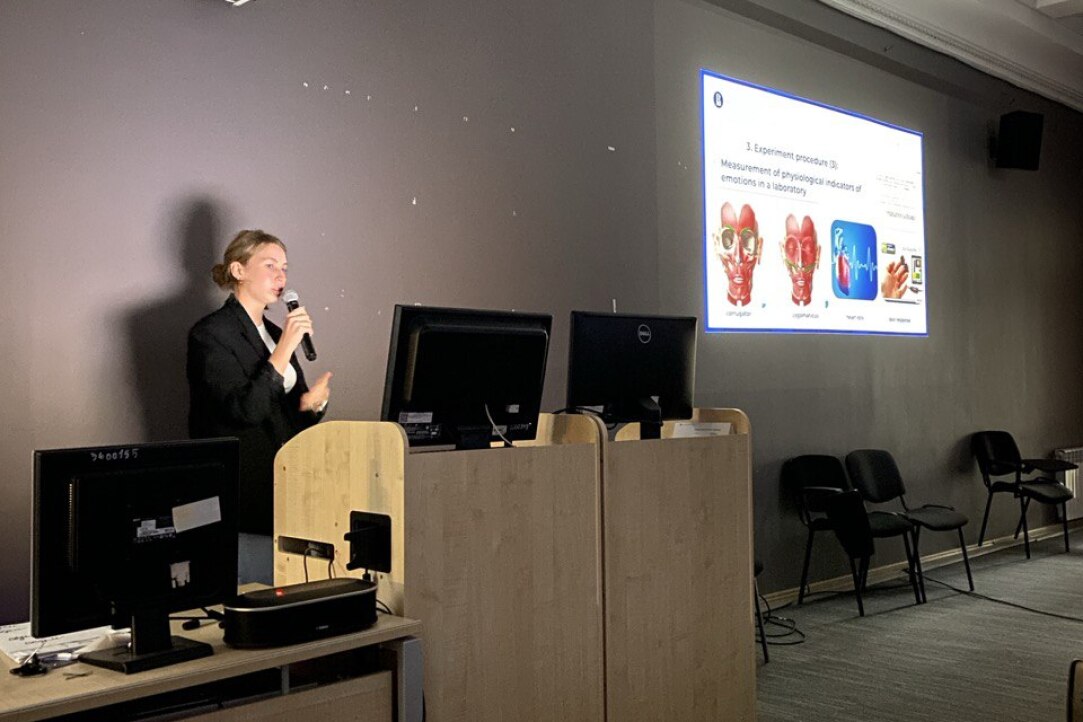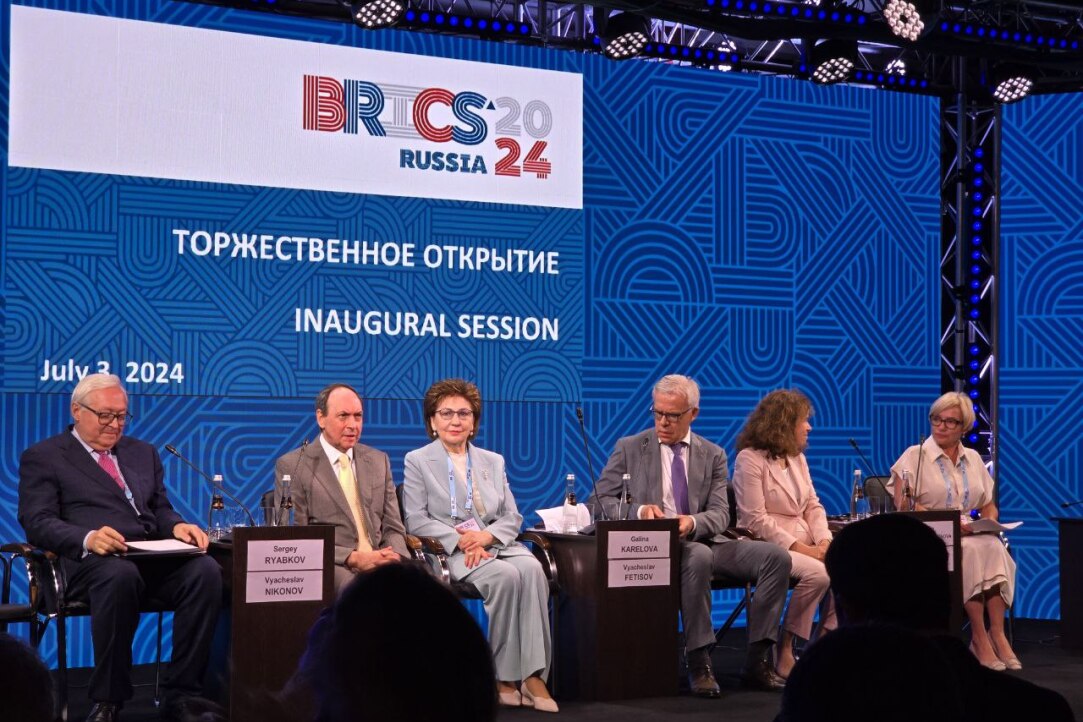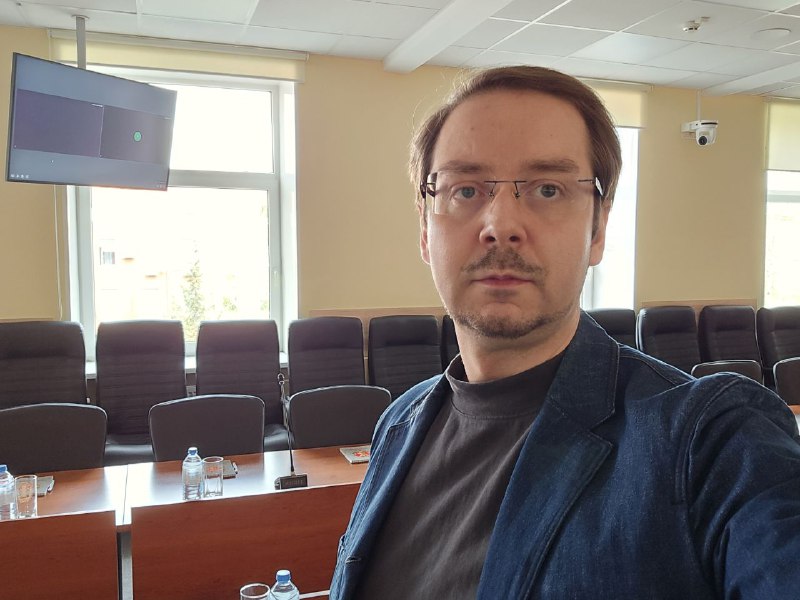
XIII International conference “Legal issues in the Digital age”
XIII International conference “Legal issues in the Digital age” was held by the Faculty of Law of the HSE University. Research Fellow of the The HSE University International Laboratory for Digital Transformation in Public Administration Evgenii Diskin took a part in it.
Online Conference: Digital Governance and Public Administration: Interdisciplinary Insights from Research
The HSE University International Laboratory for Digital Transformation in Public Administration organized an international online conference titled "Digital Governance and Public Administration: Interdisciplinary Insights from Research". Evgeny Styrin, the Head of the laboratory, served as moderator, and the presentations generated great interest among attendees.

The Lecture «The Influence of Emotions on Trust in Electronic Public Services»
Third-year students in the "Management and Analytics in the Public Sector" program attended a lecture as part of the course "Technologies of Public Administration, Program and Policy Analysis." The lecture was delivered by Agnessa Bich, a Research Assistant at the International Laboratory for Digital Transformation in Public Administration, under the guidance of Leading Research Fellow Anna Sanina. The lecture's topic was «The Influence of Emotions on Trust in Electronic Public Services», a socio-psychological experiment conducted in conjunction with the International Laboratory of Social Neurobiology.

International Municipal Forum of the BRICS Countries
Evgeny Styrin, Head of the International Laboratory for Digital Transformation in Public Administration at the HSE University, spoke at the session "World's Best Practices of interaction between municipal employees with citizens and business: implementing a human-centered approach in municipal management" within the framework of the International Municipal Forum of the BRICS Countries.

IX BRICS CIVIL FORUM
The IX Civil Forum of the BRIC countries was held in Moscow, organized by the Expert Council of the BRICS, operating on the basis of the HSE University. BRICS Civil Forum is a discussion and presentation platform of the civil societies of BRICS countries, as well as invited world majority countries to discuss citizens' proposals on the priorities of the BRICS agenda, and to present civic initiatives under this agenda. The Forum was attended by more than 450 guests from more than 20 countries.

Interdisciplinary Summer School of Digital Transformation in Public Administration
From July 2 to July 3, 2024, the International Laboratory for Digital Transformation in Public Administration for the first time held a summer school for the training and development of specialists in the field of public administration in the context of digital transformation at the Training Center for Leadership Training (Kochubey Center) Higher School of Economics – St. Petersburg. The summer school was devoted to interdisciplinary aspects of studying the problems of digital transformation in public administration. The selected students successfully completed the classes and received certificates.
Round Table “New directions in the study of digital transformation in governance”
The International Laboratory for Digital Transformation in Public Administration organized round table “New directions in the study of digital transformation in governance” in 26 June 2024. The Academic Supervisor of the International Laboratory of Digital Transformation in Public Administration, Professor Eran Vigoda-Gadot and the Head of the International Laboratory of Digital Transformation in Public Administration, Associate Professor, PhD Evgeny Styrin acted as moderators. The round table brought together 20 experts from Russia, Israel, Brazil and the USA.

The Scientific and Practical Seminar «Digital Platforms – New Environment of Interaction»
Research Fellow of the International Laboratory of Digital Transformation in Public Administration of the HSE University, Dr. E. Diskin attended the scientific and practical seminar «Digital Platforms - New Environment of Interaction» at the Institute of Legislation and Comparative Law of the Government of the Russian Federation.
The First Meeting of the BRICS Network of Scientific Research institutes of labor
Dr. Evgeny Styrin took part in The First Meeting of the BRICS Network of Scientific Research institutes of labor organized by All-Russian Scientific Research Institute of Labor of the Ministry of Labor and Social Protection of the Russian Federation. The meeting brought together researchers and practitioners from BRICS countries studying the employment issues by means of digital platforms and other means of distant work.
Think20 suggestion on topic "AI for Inclusion: A Public G20 AI Platform"
Think20 (T20) is an official Engagement Group of the G20. It serves as an "idea bank" for the G20 by bringing together think tanks and high-level experts to discuss policy issues relevant to the G20. T20 recommendations are synthesized into policy briefs and presented to G20 working groups, ministerial meetings, and leaders’ summit to help the G20 deliver concrete policy measures. Every year scientists all over the world suggest their ideas for the "idea bank" . In 2024 the "AI for Inclusion: A Public G20 AI Platform" was suggested.
